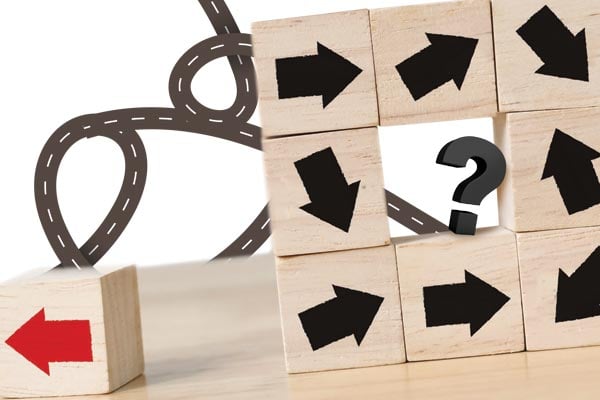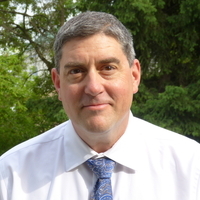Nothing short of full, legal recognition and protection will address concerns

Our profession is at a crossroads. We can choose to take the path toward becoming a true profession or we can continue down the road we’ve been traveling. In November 2019, health and safety professionals in Alberta will choose their path.
But what does it mean to be a true profession, and what will it mean if we continue down the same, old road?
Option 1: Becoming a true profession
A true profession (like lawyers, doctors, engineers) has all three of these components:
- professional titles protected under law
- scope of practice protected under law
- an oversight body to ensure that its professionals are upholding their obligations.
True professional status for OHS accomplishes the following:
- only competent, capable, educated, experienced, and ethical OHS professionals will be permitted to perform critical OHS work that requires such a professional
- the multitude of designations will become a few, clear professional titles with defined scopes of practice
- OHS professionals will be accountable to the public, not just a certifying body.
Accountability is key, because OHS professionals make a difference. Competent, capable, educated, experienced and ethical OHS professionals save lives. The converse is also true: incompetent people purporting to be OHS professionals endanger lives. There must be accountability to the public for such a breach of trust in order to protect the credibility of the profession.
Option 2: Continuing down the same, old road
Going down the same, old road does not mean that the OHS profession stays the same. It means that it will likely devolve. Without legal protection, more questionable and confusing OHS designations will be created, more unqualified people will call themselves OHS professionals, and more lives will be placed at risk.
Even the current reputable OHS designations are not title protected; rather, they are trademark protected. There is a big difference. If you use a trademark unlawfully, you could be sued (though we are unable to find any case where someone was sued for unlawfully using an OHS designation). If you fraudulently use a protected professional title, you can go to jail (there are plenty of examples of that occurring). Misrepresenting oneself as a competent OHS professional endangers lives. Such an offence should be treated as a crime, not a lawsuit.
Then there is the most disturbing part of the same, old road: anyone can call themselves an OHS professional though they may have zero qualifications and zero accountability. Holding any designation, whether reputable or not, is voluntary. Hiring people with reputable designations is also voluntary. If a person practicing in this critical, live-saving field does not hold a reputable designation, then that person is also not bound by any ethical obligations. Given the importance of the OHS professional in saving lives, this situation is unacceptable.
The approach
There have been many attempts around the world to evolve the OHS profession. Though these have improved the practice of OHS, they have not resulted in true professional status. These are some examples of those efforts:
international accords on the OHS profession
- national and international frameworks
- agreements with governments
- mandatory employment of worker safety officers for certain industries with a certain number of employees.
Although these are valiant efforts, nothing short of full, legal recognition and protection will address the problems we see in the profession today.
Also, there is no point of regulating a single discipline or designation, because the OHS profession is not a single discipline, nor is it a single designation. We are occupational hygienists. We are ergonomists. We are field-level specialists. We are auditors, and we are generalists. All these subsets consist of different people with different competencies, capabilities, education, and experience; but, together, we all form the greater OHS profession. So, is it in the public interest to only regulate a small component of the overall profession (e.g., a few, select designations) and leave all the other disciplines travelling down the same, old road? We say no. All OHS disciplines are important. All OHS disciplines deserve recognition and protection under law. Regulate the entire profession, and let’s work together to save lives.
The Alberta Society of Health and Safety Professionals (ASHSP) is taking this approach. We are proposing a joint-college model that will see the regulation of all the sub-disciplines of OHS. We believe this is the only way to make OHS into a true profession.
To begin the process of becoming a true profession in Alberta, it must be established that a significant number of those practicing in the area support full-professional status.
The ASHSP was established in November 2017 to create the framework for a regulated OHS profession in Alberta. In November, we will be tallying the ASHSP membership numbers (296 members as of Sept. 25) to determine whether Alberta’s OHS professionals support becoming true professionals. If we have this support, we move forward.
The goal of the ASHSP is to pursue an application to establish OHS as a true profession. Our hope is that the application will set OHS on a course toward becoming a legally recognized and protected profession. However, failure will not mean failure. If we are unsuccessful with the application, we will successfully answer one critical question: What are the obstacles that are preventing such an important, life-saving practice from becoming a true profession? People have speculated about those obstacles for decades, but no one has put those theories to the test.
The ASHSP is stepping on the throttle. We are driving down this road to either clear sailing or to hit a wall. But if we do hit a wall, we will finally know what the wall is, and we can all work to tear it down. Together, saving lives.






